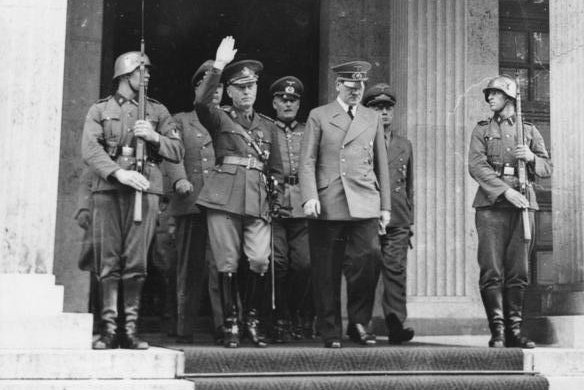URGENT UPDATE: Today marks the 83rd anniversary of Romania’s pivotal decision during World War II, officially joining the Axis powers by signing the Tripartite Pact on November 23, 1940. This alliance with Germany, Italy, and Japan significantly altered the landscape of the war and set the stage for future conflicts in Europe.
In a series of historical events, this date is not only significant for Romania but also resonates with global implications. The pact served to bolster the Axis position against the Allies, intensifying the already brutal war efforts across Europe and Asia.
As we reflect on this day, it is crucial to examine the broader implications of Romania’s alignment. The decision to join the Axis was motivated by a mix of geopolitical strategy and national interests, reflecting the turbulent dynamics of the era. This move led to widespread military engagements, which ultimately resulted in devastating consequences for Romania and its people.
In addition to this historical milestone, November 23 has seen numerous significant occurrences over the years. For instance, on this day in 1963, President Lyndon Johnson delivered a poignant address following the assassination of President John F. Kennedy, emphasizing themes of freedom and mourning that continue to resonate today.
Moreover, November 23 has witnessed tragic events, such as the 2022 shooting in Chesapeake, Virginia, which left six individuals dead and highlighted ongoing issues surrounding gun violence in the United States. The shooter, Andre Marcus Bing, tragically took his own life, leaving behind a note that revealed deep personal struggles, further underscoring the profound human impact of such violent acts.
As we observe the historical significance of today, it is important to acknowledge how these events shape our understanding of conflict, governance, and societal challenges. The lessons from Romania’s alliance during WWII remind us of the complex interplay between national decisions and global repercussions.
Looking ahead, the dialogue surrounding the implications of such historical alliances continues to evolve. As historians and political analysts reflect on the past, they urge us to consider the ramifications of political pacts and the importance of fostering peace over conflict.
Stay tuned for more updates as we continue to explore the impact of these historical events on contemporary society. Share this article to keep the conversation going about the lessons learned from our past and their relevance today.
